 December 13, 2018 John E. Ross, KD8IDJ, Editor
| |||||||||
Fox-1Cliff/AO-95 Suffers Apparent Receiver Failure The receiver on the newly launched Fox-1Cliff/AO-95 CubeSat seems to have suffered a receiver failure that could render the satellite unusable, AMSAT said over the weekend. Efforts continue by AMSAT Engineering to establish the cause of the problem and determine if a fix is possible. AMSAT Vice President-Engineering Jerry Buxton, N0JY, reported over the weekend that the issue cropped up during efforts to "After a few days of tests, analysis, and discussion, it appears that Fox-1Cliff/AO-95 will not be commissioned as our fourth Fox-1 Amateur Radio satellite," Buxton said. Commissioning began on December 4, right after the CubeSat's successful launch a day earlier. "AMSAT Engineering will continue to evaluate and test Fox-1Cliff/AO-95 for solutions to the anomaly, and your continued help in providing telemetry is appreciated so that we can have data throughout her daily orbits, rather than limited data over our US stations," Buxton said. "The data, analysis, and testing could lead to a positive solution, but at the very least will be important to AMSAT's satellite programs in providing information that would help us and others avoid similar situations with future missions." In a post to AMSAT-BB, Buxton mentioned one suggestion of employing a high-power station to see if AO-95 could hear its signal, but he added that AMSAT Engineering would not be offering a blow-by-blow narrative of its efforts to restore the satellite to operating condition, "unless it is something of merit or actionable."
Buxton noted that AMSAT's resources are limited, and all involved are volunteers. "Most -- if not all -- of our remaining Fox-1 engineers are also involved in the GOLF-TEE project, so I have asked them to give that first priority with their available volunteer time in order to keep the schedule," Buxton said. "AO-95 is in orbit now, and we can vary the amount of attention on her as resources allow in order to achieve both goals. If the results of our investigation point to a possibility of recovery, be it partial, full, or some workaround method, we would all like to see her working as much as the rest of you, and that is a driver for this investigation." Buxton said he anticipates that AMSAT Engineering will continue to seek the cause of the apparent receiver failure, "until we have results or reach a dead end, because of the inability to take the lid off and look inside AO-95." "I will certainly be keeping everyone posted when we have something new to report," Buxton said. First FT8 Roundup is a Huge Hit The first FT8 Roundup over the December 1 - 2 weekend attracted some 1,300 logs from those taking advantage of the ever-more- "The FT8 Roundup was the last shakedown for the WSJT-X 2.0-rc5 beta software," said well-known RTTY contesting enthusiast and expert Don Hill, AA5AU, an FT8 cosponsor with Ed Muns, W0YK. "It performed with no major complications." The general availability release of WSJT-X 2.0 is now out, and it's not backward compatible with WSJT-X 1.9 or earlier versions. Developer Joe Taylor, K1JT, has
urged users to upgrade by January 1 to what now is the new world standard. Muns, who's NCJ "Digital Contesting" contributing editor, said FT8 Roundup participation compared favorably with that for the ARRL RTTY Roundup, which has averaged around 1,700 logs in recent years. "Don and I expected the contest to be popular," Muns said, "but the participation far exceeded our expectations. I think it bodes well for future FT8 contesting. Don and I are pretty bullish about continuing the FT8 Roundup on the first full weekend of December each year." Nonetheless, Muns said he doesn't see FT8 to "really take off" and
displace RTTY until the contact rate can be significantly increased through parallel QSO techniques. Hill agreed on the event's popularity. "I have to say it was a huge success," he said. "Ed and I never dreamed it would be this popular. It didn't make sense to continue the Ten-Meter RTTY Contest during this part of the sunspot cycle. Replacing it with an all-FT8 HF contest was the logical choice." Hill and Muns have cosponsored the Ten-Meter RTTY Contest. Hill said final results of the inaugural FT8 Roundup should be out in a few days. "After the New Year, we hope to have downloadable online certificates available to all participants. We will definitely do it again next year," he said. The 2019 ARRL RTTY Roundup will permit the use of FT8. Hamvention Seeks 2019 Award Nominees Hamvention® is soliciting nominees for its 2019 awards -- Amateur of the Year, Technical Achievement, Special Achievement, and Club of the Year. Since the inception of the Hamvention awards program in 1955, many radio amateurs have been honored for their dedication and selfless contributions to Amateur Radio and to society.
Nomination forms for each award are available online and should include the information requested. The individual(s) making the nomination should provide contact information in case questions arise. Submit nominations via email or via USPS mail to Hamvention Awards Committee, Box 964, Dayton, OH 45401-0964. The nomination deadline is February 15. The Awards Committee will announce the award recipient after reviewing the nominations. An honors convocation will be held on the Saturday evening of Hamvention weekend, and presentations to award winners will take place on Sunday afternoon, prior to the door prize awards. Contact the Awards Committee for more information. -- Thanks to Mike Kalter, W8CI, and Frank J. Beafore, WS8B The Doctor Will See You Now! "RF Safety" is the topic of the latest (December 6) episode of the "ARRL The Doctor is In" podcast. Listen...and learn!
Every 2 weeks, your host, QST Editor-in-Chief Steve Ford, WB8IMY, and the Doctor himself, Joel Hallas, W1ZR, will discuss a broad range of technical topics. You can also email your questions to doctor@arrl.org, and the Doctor may answer them in a future podcast. Enjoy "ARRL The Doctor is In" on Apple iTunes, or by using your iPhone or iPad podcast app (just search for "ARRL The Doctor is In"). You can also listen online at Blubrry, or at Stitcher (free registration required, or browse the site as a guest) and through the free Stitcher app for iOS, Kindle, or Android devices. If you've never listened to a podcast before, download our beginner's guide. Just ahead: "Ground Plane Antennas." ARRL 2018 Philip J. McGan Award Presented The recipient of the 2018 Philip J. McGan Award for outstanding efforts in public relations on behalf of Amateur Radio was presented on December 3 in South Carolina. E. Gordon Mooneyhan, W4EGM -- the Public Information Officer (PIO) for the Grand Strand Amateur Radio Club -- received the award plaque in a presentation by ARRL Roanoke Division Vice Director Bill Morine, N2COP.
Mooneyhan was credited with adapting and applying "innovative strategies to emerging social media" in promoting Amateur Radio and events. In presenting the award, Morine noted that Mooneyhan was selected from among 512 PIOs for his innovative campaigns incorporating traditional and social media. Mooneyhan expressed gratitude to the club for its support and to the media for considering his news releases as an opportunity to inform the public about Amateur Radio. The award's namesake, journalist Philip J. McGan, WA2MBQ (SK), served as the first chairman of the ARRL's Public Relations Committee, which helped reinvigorate ARRL's commitment to public relations. The McGan Award is presented in his memory to the radio amateur who best exemplifies the volunteer spirit of Phil McGan. ARRL Bill Leonard Audio Reporting Award Presented in New York City
The 2017 ARRL Bill Leonard W2SKE Professional Media Award was presented in New York on December 6 to the producers and staff of the radio program "The Takeaway." The program, a joint production of Public Radio International (PRI), WGBH, and WNYC, aired a number of stories about Amateur Radio's role in supporting disaster relief agencies in Puerto Rico following Hurricane Maria. ARRL Emergency Preparedness Manager Mike Corey, KI1U, presented the Leonard Award for Audio Reporting. "The Takeaway" had interviewed Corey about how radio amateurs were supporting the American Red Cross's efforts to convey "safety and wellness" messages from the island commonwealth to relatives on the US mainland. Corey and ARRL CEO Howard Michel, WB2ITX, also toured the WNYC studios, where the program is produced. The Leonard Award is named for late CBS New President Bill Leonard, W2SKE, an avid radio amateur and advocate for the service. The annual award honors outstanding professional audio, visual, and print/text journalism that highlights the enjoyment, importance, and public service value of Amateur Radio. The ARRL Public Relations Committee judges nominations. The ARRL Board of Directors makes the final decisions. Attorney Jane Hinckley Halprin Named as FCC's Administrative Law Judge FCC Chairman Ajit Pai has announced that Jane Hinckley Halprin will serve as the agency's Administrative Law Judge (ALJ). She succeeds Judge Richard Sippel, who retired on December 1. "Jane has done tremendous work at the FCC, and I congratulate her on this new role," Pai said. "The good judgment she displayed working on ethics issues at the agency for over a decade will serve her well as Halprin joined the FCC in 1987 as a staff attorney in the former Common Carrier Bureau and has occupied positions in the former Mass Media Bureau, the Wireless Telecommunications Bureau, and the Office of General Counsel. For the past 14 years, she has served in the Office of General Counsel as an Ethics Counsel and for the past year has led the agency's ethics team as Assistant General Counsel for Ethics. The FCC Office of Administrative Law Judges is responsible for conducting Commission-ordered hearings. An ALJ acts on interlocutory requests filed in the proceedings, such as contested discovery requests. ALJs are appointed by a vote of all Commissioners. Broadcasters Intruding on Exclusive Amateur Radio Frequencies The International Amateur Radio Union Region 1 (IARU-R1) Monitoring System (IARUMS) reports that Radio Hargeisa in Somaliland has returned to 7,120 kHz after a break of several weeks, while Radio Eritrea has been reported on 7,140 and 7,180 kHz. Radio Sudan has been transmitting on 7,205 kHz with excessive splatter, IARUMS said. German telecommunications authorities have filed official complaints.
IARUMS has also reported digital signals attributed to the Israeli Navy on 7,107 and 7,150 kHz. In addition, a Russian military F1B signal was observed in mid-November on 7,179 kHz. A Russian over-the-horizon radar has returned to 20 meters on 14,335 - 14,348 kHz. It was monitored on November 22. Earlier this fall, IARUMS reported digital signals from the Polish military daily on 7,001.8 kHz where Amateur Radio has a worldwide primary allocation. Telecommunications officials in Germany filed a complaint. IARUMS has received reports of short "beeps" exactly 1 second apart, as well as frequency hopping between 10,108 and 10,115 kHz and 18,834 and 18,899 kHz. The signals are believed to emanate from a site near Chicago associated with an FCC-licensed experimental operation involved with low-latency exchange trading on HF (see "Experiments Look to Leverage Low-Latency HF to Shave Microseconds off Trade Times"). Although Amateur Radio is secondary on 30 and 17 meters, Experimental licenses may not interfere with Amateur Radio operations. Inaugural "Green Keys Night" Set for January 1 "Green Keys Night" -- an event aimed at promoting the restoration and use of vintage mechanical teleprinters -- will take place on January 1, 2019 (UTC), concurrent with Straight Key Night (SKN). As with SKN, GKN is an operating event and not a contest. "Green keys" refers to the color of the keys on Teletype Corporation machines. Participants are encouraged to get on the air and enjoy making casual contacts on RTTY. Call "CQ GKN."
"The use of mechanical teleprinters is preferred, or simply get on the air with the oldest equipment you can scrape together," said Jeff Stai, WK6I. "Real heavy-metal teletypes to be sure, but if that isn't available, analog hardware modems, VT100 terminals, pre-Windows computers, etc. And vacuum tubes. And maybe fire up that boatanchor rig that never gets enough air time." Sponsors request no pre-recorded messages or "brag tapes," just "a real conversation by hand typing it keyboard to keyboard." Even those who do not own or have access to any old RTTY gear are invited to get on the air too, doing RTTY "the old-fashioned way," keyboard to keyboard. Stai asks participants to let him know if they were active in the event and to share a favorite or most interesting QSO (worked or heard), a log, and equipment operated (including photos). The SARTG New Year RTTY Contest runs from 0800 to 1100 UTC on January 1. Stai suggested operating in that event as well. The GreenKeys online group is an email list devoted to the discussion of older RTTY gear, including mechanical teleprinters, terminal units, paper tape, gears, cams, oil, and anything else related to TTY/RTTY. In Brief...
ExseedSat has been designated as VO-96. At the request of Exseed Space, AMSAT has designated the 1U ExseedSat CubeSat, launched on December 3 on a Falcon 9 vehicle from Vandenberg Air Force Base in California, as VUsat-OSCAR 96 (VO-96). ExseedSat was built by a team of Indian radio amateurs, including Ashhar Farhan, VU2ESE; George Philips, VU2GT; Gurudatta Panda, VU3GDP; Sasi Bhushan, VU3ELR, and Nitin Muttin, VU3TYG. Initial telemetry has been received around the world. The downlink is 145.900 MHz for the FM repeater (CTCSS = 67 Hz) and digipeater, plus telemetry, and 435.340 MHz for FM repeater and digipeater uplink. Visit the IARU Satellite Frequency Coordination page for more information. -- Thanks to Drew Glasbrenner, KO4MA, AMSAT VP Operations/OSCAR Number Administrator
Getting It Right The article "NACC a Chance for College Clubs to Compete with Each Other," which appeared in the December 6 edition of The ARRL Letter contained an error relating to the NCJ-sponsored North American QSO Party (NAQP), within which the NACC will operate as "a contest within a contest." The exchange for the NAQP is name plus state/Canadian province/NA country. The K7RA Solar Update Tad Cook, K7RA, Seattle, reports: Our recent reporting week (December 6 - 12) had sunspots on 5 of the 7 days, with an average daily sunspot number of 9.7 -- up from 2.3 from the previous 7 days. The average daily solar flux rose from 68.9 to 70.7. Geomagnetic indices were moderate, with the average daily planetary A index increasing from 7 to 8, and the mid-latitude A index rising from 4.9 to 6.4.
The predicted planetary A index is 5 on December 13 - 27; then 8, 12, 10, and 8 on December 28 - 31; 5 on January 1 - 2; 10 on January 3 - 4; 8 on January 5 - 6; 5 on January 7; 8 on January 8 - 9; 5 on January 10 - 12; 8 on January 13 - 14; 5 on January 15 - 23, and 8, 12, and 10 on January 24 - 26. On December 11, N0JK reported from Kansas on the ARRL 10 Meter Contest: "Much better conditions this year than last. On Saturday afternoon, had E-skip to W4 and W5, which allowed links on to F2/TEP propagation to South America. Running just 5 W, I logged CE, CX, LU, and PY stations via Es link. Double hop Es to HK, P4 and PJ2. Single hop Es to W4 and W5. "Sunday the band conditions not nearly as good, but I see the northeast states had strong Es to Florida. This in turn allowed them to link on to South America. Also strong single-hop Es along west coast. "Had some weak Es in Kansas, heard CO8RH, but he faded out while I was fiddling with my hand key. I was able to work 9Z4Y on 10-meter CW." Sunspot numbers for December 6 - 12 were 17, 16, 12, 12, 0, 11, and 0, with a mean of 9.7. The 10.7 centimeter flux was 69.7, 70.1, 70.5, 71.6, 71, 71, and 70.8, with a mean of 70.7. Estimated planetary A indices were 5, 10, 10, 9, 11, 7, and 4, with a mean of 8. Estimated mid-latitude A indices were 3, 8, 10, 6, 8, 7, and 3, with a mean of 6.4. Share your reports and observations.
Just Ahead in Radiosport
See the ARRL Contest Calendar for more information. For in-depth reporting on Amateur Radio contesting, subscribe to The ARRL Contest Update via your ARRL member profile email preferences. Upcoming ARRL Section, State, and Division Conventions
Find conventions and hamfests in your area.
. .
Subscribe to...
Free of charge to ARRL members...
| |||||||||
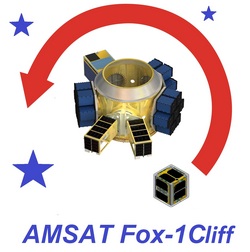 commission Fox-1Cliff/AO-95.
commission Fox-1Cliff/AO-95..jpg)
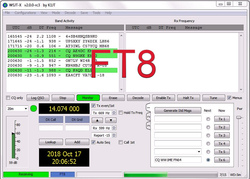 popular digital protocol. This, despite its having been announced on fairly short notice and with other events such as the ARRL 160-Meter Contest on the same weekend. More than 400 of the logs were from US radio amateurs in the 48 contiguous states, plus the District of Columbia. Overall, some 131,200 contacts were recorded. Participants from 91 countries submitted logs, testifying to the fact that FT8 is not just a US phenomenon.
popular digital protocol. This, despite its having been announced on fairly short notice and with other events such as the ARRL 160-Meter Contest on the same weekend. More than 400 of the logs were from US radio amateurs in the 48 contiguous states, plus the District of Columbia. Overall, some 131,200 contacts were recorded. Participants from 91 countries submitted logs, testifying to the fact that FT8 is not just a US phenomenon.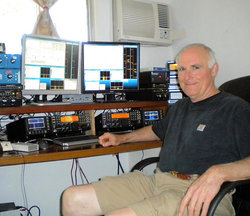
.jpg)
 The Amateur of the Year Award recognizes a radio amateur who demonstrates a long-term commitment to the advancement of Amateur Radio, a history of contributions to ham radio, and a dedication to service and professionalism.
The Amateur of the Year Award recognizes a radio amateur who demonstrates a long-term commitment to the advancement of Amateur Radio, a history of contributions to ham radio, and a dedication to service and professionalism.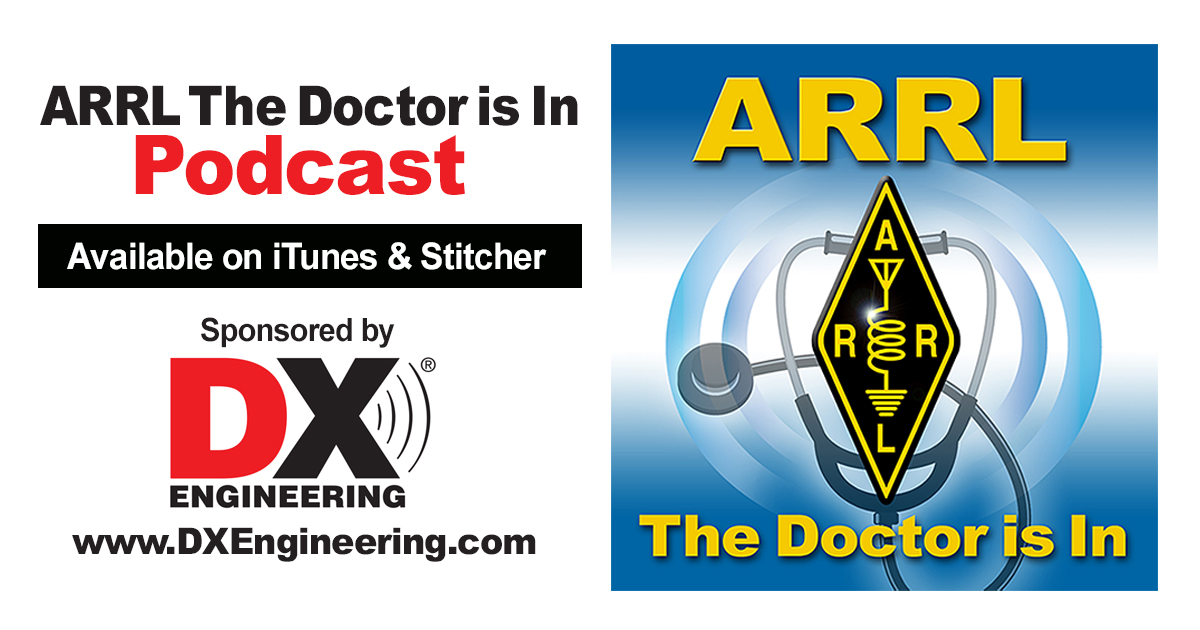 Sponsored by
Sponsored by -with-N2COP.jpg)
.jpg)
.jpg) our Administrative Law Judge." Pai also thanked Sippel for his 32 years of service as an ALJ, during which he handled several Amateur Radio cases.
our Administrative Law Judge." Pai also thanked Sippel for his 32 years of service as an ALJ, during which he handled several Amateur Radio cases..JPG)
.jpg)
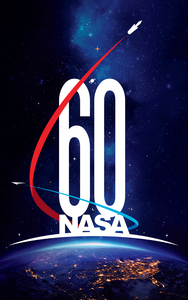 Several NASA Amateur Radio clubs will mark the 50th anniversary of Apollo 8 on December 21 - 27, concluding the year-long
Several NASA Amateur Radio clubs will mark the 50th anniversary of Apollo 8 on December 21 - 27, concluding the year-long .jpg)
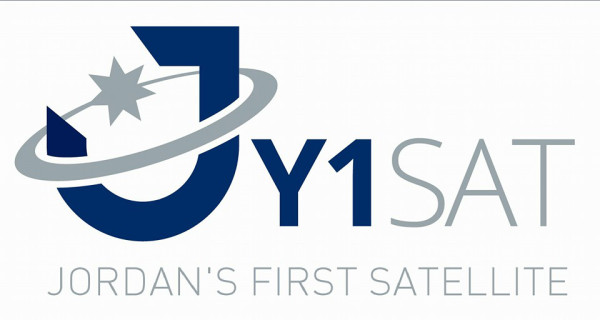 Jordan's first CubeSat, JY1Sat, is now JO-97. JY1Sat, launched on December 3 from Vandenberg Air Force Base in California as part of the SpaceX SSO-A: SmallSat Express launch, has been designated as Jordan OSCAR 97 (JO-97). The 1U CubeSat is a project of the Crown Prince Foundation of Jordan. Telemetry has been received and decoded around the world since the launch. The spacecraft's name recalls the Amateur Radio call sign of Jordan's late King Hussein, JY1. JO-97 carries a 435/145 MHz SSB/CW inverting Amateur Radio transponder and a Slow-Scan Digital Video (SSDV) system to transmit stored images. The telemetry downlink is on 145.840 MHz, the transponder downlink passband is 145.855 - 145.875 MHz, with an inverting uplink on 435.100 - 435.120 MHz. -- Thanks to AMSAT
Jordan's first CubeSat, JY1Sat, is now JO-97. JY1Sat, launched on December 3 from Vandenberg Air Force Base in California as part of the SpaceX SSO-A: SmallSat Express launch, has been designated as Jordan OSCAR 97 (JO-97). The 1U CubeSat is a project of the Crown Prince Foundation of Jordan. Telemetry has been received and decoded around the world since the launch. The spacecraft's name recalls the Amateur Radio call sign of Jordan's late King Hussein, JY1. JO-97 carries a 435/145 MHz SSB/CW inverting Amateur Radio transponder and a Slow-Scan Digital Video (SSDV) system to transmit stored images. The telemetry downlink is on 145.840 MHz, the transponder downlink passband is 145.855 - 145.875 MHz, with an inverting uplink on 435.100 - 435.120 MHz. -- Thanks to AMSAT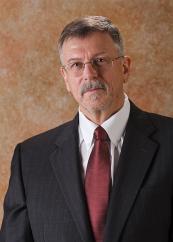 The Radio Club of America (RCA) has announced the appointment of ARRL West Gulf Division Vice Director John Robert Stratton, N5AUS, as Vice President and Co-Counsel. Stratton will coordinate duties with current Vice President and Counsel Chester "Barney" Scholl, Jr. A specialist in civil litigation, Stratton holds a bachelor of science in aerospace engineering from the University of Texas and is a graduate of the University of Texas Law School.
The Radio Club of America (RCA) has announced the appointment of ARRL West Gulf Division Vice Director John Robert Stratton, N5AUS, as Vice President and Co-Counsel. Stratton will coordinate duties with current Vice President and Counsel Chester "Barney" Scholl, Jr. A specialist in civil litigation, Stratton holds a bachelor of science in aerospace engineering from the University of Texas and is a graduate of the University of Texas Law School.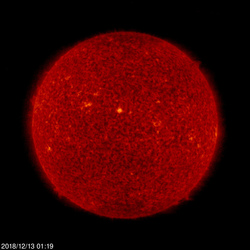 The predicted solar flux over the next 45 days is 70 on December 13 - 20; 68 on December 21 - 22; 70 on December 23 - January 4; 68 on January 5 - 18, and 70 on January 19 - 26.
The predicted solar flux over the next 45 days is 70 on December 13 - 20; 68 on December 21 - 22; 70 on December 23 - January 4; 68 on January 5 - 18, and 70 on January 19 - 26.







